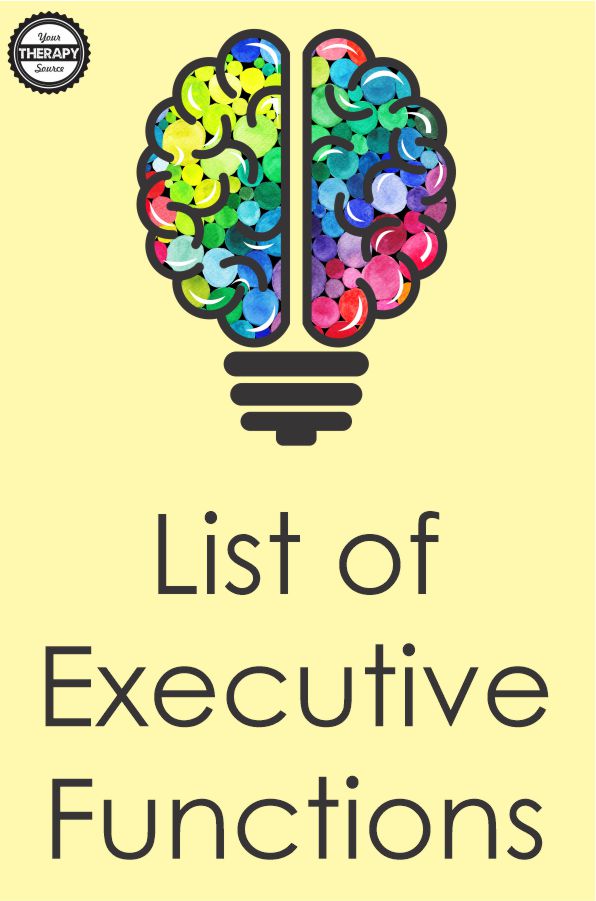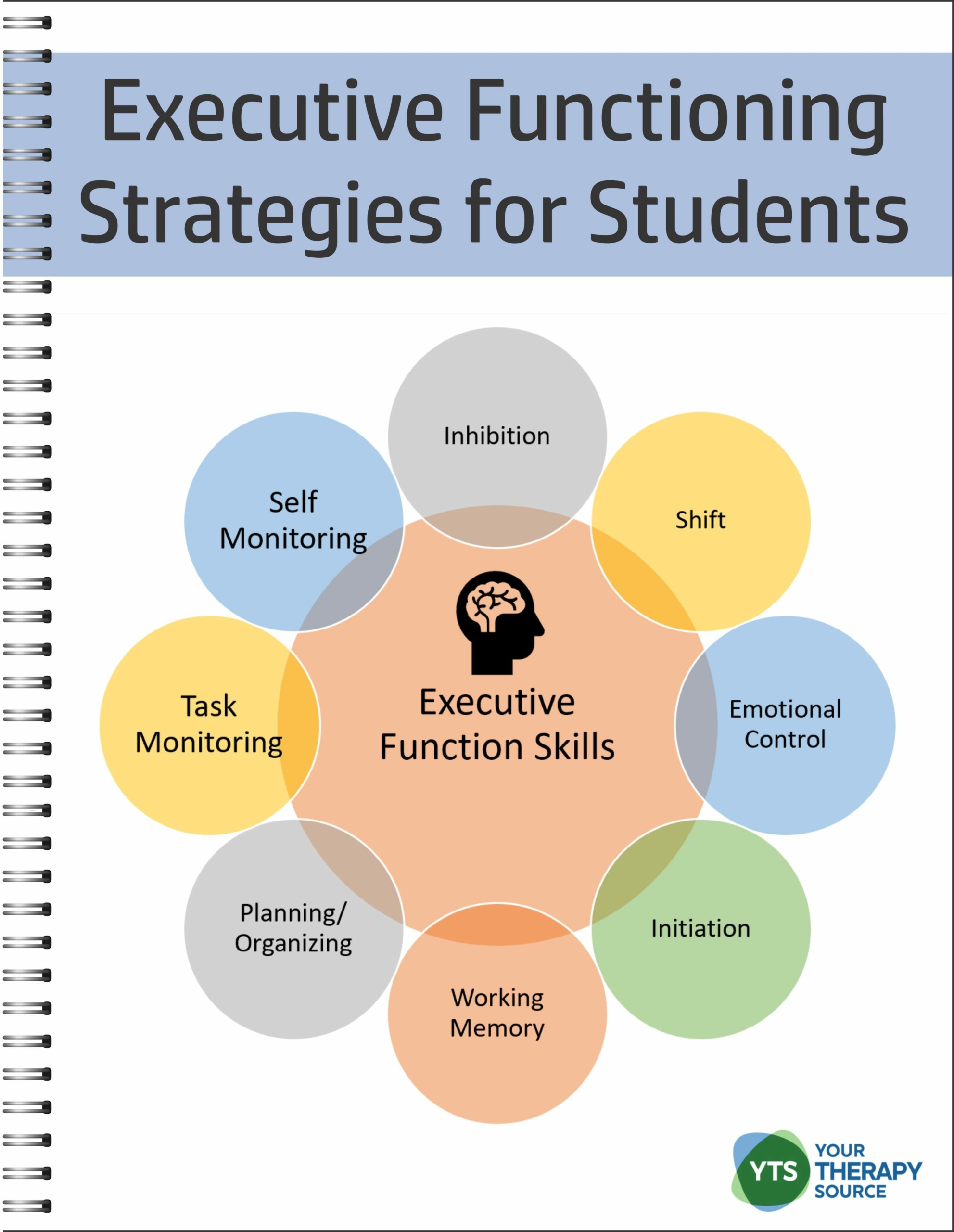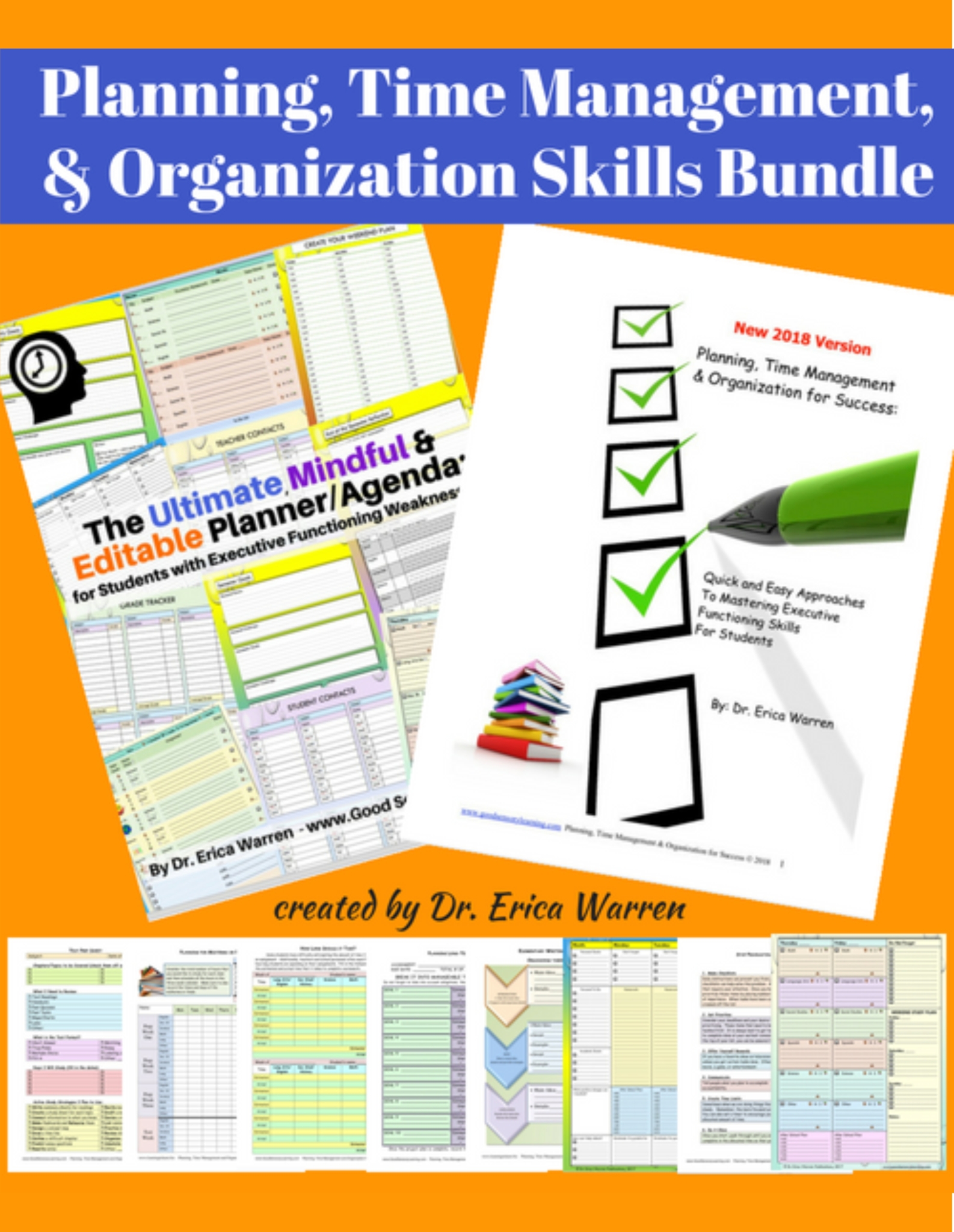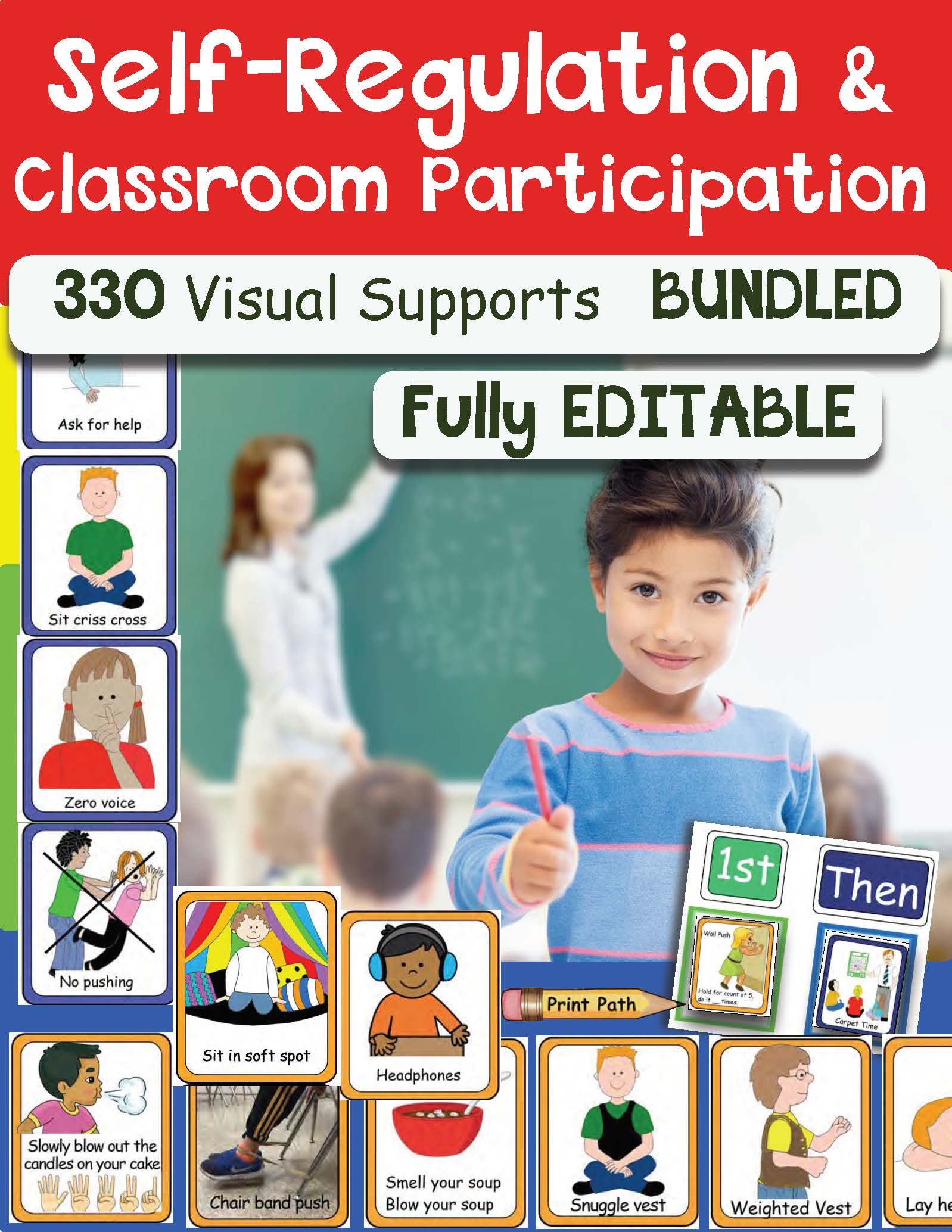List of Executive Functions

Are you looking for ways to help your students with their executive functions, so they can optimize their learning and growth? Executive function skills are critical in the classroom; they allow students to plan, prioritize, pay attention and adapt to changing situations. As a teacher, it’s important that you understand these skills and how you can best support your students in developing them. Wouldn’t it be fantastic to have a list of executive functions to help you?
WHAT ARE EXECUTIVE FUNCTIONS?
Executive functions are mental processes that help us to remember, plan, problem-solve, analyze and execute tasks. They include important skills such as self-regulation, working memory, cognitive flexibility, and inhibition control. This list of executive functions will help you learn more about them.
WHERE IN THE BODY DOES EXECUTIVE FUNCTIONING TAKE PLACE?
Executive functions take place in the prefrontal cortex of the brain. Different areas of the brain are responsible for different tasks, and the prefrontal cortex is responsible for decision-making and problem-solving. The prefrontal cortex is not fully developed until the age of 25. This helps explain why children and young adults need more support in developing executive functions.

Executive Functioning Strategies for Students
WHY IS EXECUTIVE FUNCTIONING IMPORTANT?
Executive functions help us to organize our thoughts, control our behavior and make decisions. They are essential skills for both learning and performing daily tasks. In school, executive function skills enable students to plan their work, focus on tasks, remember instructions and adapt to changes quickly. When students have executive functioning issues, it produces a real inability to succeed in school.
EXECUTIVE FUNCTIONING SKILLS
Students can develop many skills in order to improve their executive functioning ability. When students work on these skills, they are working towards better academic performances, as well as better home experiences. Special education teachers and occupational therapists can work on executive functioning skills with their students. Check out some of these free executive functioning activity worksheets to get you started. Here is a list of executive functions:
Working Memory
A working memory makes it possible for students to take in new information and recall it later. Students need to be able to rely on their working memory to remember instructions, complete tasks, and recall information.
Self Regulation
For students to have effective self-regulation, they must be able to control their emotions, behavior, and impulses to reach a goal or complete a task.
Emotional Regulation
Controlling one’s emotions and remaining calm. Students must be able to recognize and manage their own emotions in order to focus on tasks.
Mental Flexibility
For this skill, students need to be able to switch between tasks quickly and adjust as needed when presented with new information or situations.
Inhibitory Control
This involves students resisting temptation and staying focused on the task at hand. To improve impulse control, students must work on their inhibitory control.
Planning and Prioritization
Breaking down tasks into smaller steps, prioritizing them and developing a plan of action for completing them.
Time Management
When students have effective time management skills, they can plan ahead and estimate how long tasks will take. They can make a schedule for themselves and meet academic deadlines effectively.

Planning, Time Management, and Organization Skills Bundle
Organization
This means students can arrange ideas and information in a logical way that makes sense to others. Students having difficulty organizing their thoughts or work makes it nearly impossible to accomplish complex tasks.
Adaptable Thinking
A student’s ability to adjust one’s thinking based on new information or feedback. This feedback can come from teachers, other adults, or peers.
Self Monitoring
Students are able to recognize their own mistakes and adjust behavior accordingly.
Self Control
The ability to control one’s own behavior and stay focused even when faced with distractions. Students can avoid the urge to do whatever they want, and focus on the task at hand.
TEACHING EXECUTIVE FUNCTIONS FOR STUDENTS WITH DISABILITIES
Students with disabilities often have more difficulty learning executive functioning skills. It is important that teachers provide additional support to help them develop these skills. Some executive functioning strategies may include providing visual supports, breaking tasks into smaller steps, using prompts and cues, and providing feedback and scaffolding techniques. Special education teachers should also pay attention to the executive functioning IEP goals for their students.

Visual Supports: Schedules, Self-Regulation, & Classroom Inclusion
Visual Supports
Visual supports can be a great tool for students with disabilities to help them manage their tasks and complete assignments. Examples of visual supports include task lists, calendars and visual cues.
Break Tasks Into Smaller Steps
Breaking larger tasks down into smaller manageable chunks is an effective way to help students keep track of their work and stay focused on the task at hand.
Use Prompts and Cues
Provide verbal or visual reminders to help students remember what they need to do and stay on track with their tasks.
Provide Feedback
Give feedback when necessary in order to keep students motivated. Feedback gives students a sense of accomplishment when they’re doing well, and a sense of what they still need to work on when they need improvement.
Provide Scaffolded Techniques
Scaffolding is a strategy in which the teacher provides assistance and guidance to help students master certain skills. This can be done by breaking tasks into smaller steps and providing verbal or visual cues as needed.
By incorporating these strategies, teachers can help students develop executive functioning skills that are essential for success in school and life. With practice and support, students with disabilities can learn to manage their time, stay organized and become more independent learners.
STUDENTS WITH ADHD AND EXECUTIVE FUNCTIONS
Students with a diagnosis of Attention Deficit Hyperactivity Disorder (ADHD) often struggle with executive functioning skills. Research documents the connection between ADHD and executive function. Symptoms such as impulsivity and forgetfulness can make it difficult for them to complete tasks efficiently and stay organized. It is important that teachers provide additional support and modify their instruction to help students with ADHD succeed in the classroom.
STUDENTS WITH AUTISM AND EXECUTIVE FUNCTIONS
Students with Autism Spectrum Disorder (ASD) often have difficulty learning and understanding executive functioning skills. These students need explicit instruction and practice in order to develop these skills. It is important that teachers provide visual supports, break tasks down into smaller steps, use prompts and cues, and provide feedback and scaffolding techniques in order to help students with autism learn executive functioning skills.
STUDENTS WITH DEPRESSION AND EXECUTIVE FUNCTIONS
Students with depression often have difficulty managing their tasks and staying organized. It is important that teachers provide supportive strategies to help these students develop the executive functioning skills they need in order to succeed in school. It also is important to provide a safe and supportive environment in order for these students to be able to focus on their work.
By understanding these executive function skills, teachers can better support their students in developing them. With a better grasp of executive functioning, teachers can create an environment where students feel comfortable taking risks, practicing self-regulation, and using their creativity to explore new ideas. This list of executive functions is a useful place for you to begin helping your students with these skills.



